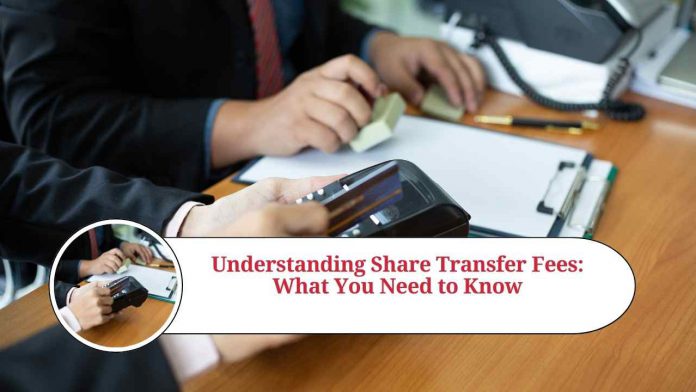When buying or selling shares in a company, it is important to be aware of the fees associated with transferring ownership. Share transfer fees can vary depending on the jurisdiction and the type of shares being transferred. In this blog, we will explore the basics of share transfer fees and what you need to know before making a transaction.
What Are Share Transfer Fees?
Share transfer fees are the charges incurred when transferring ownership of shares from one party to another. These fees are typically paid to a stock transfer agent or a broker who facilitates the transaction. The fee structure for share transfer fees can vary depending on the type of shares being transferred, the value of the shares, and the location of the transaction.
Types of Share Transfer Fees
There are several types of share transfer fees that you should be aware of, including:
- Flat Fee: This is a fixed amount charged for the transfer of shares. It is usually a set dollar amount and does not vary based on the value of the shares being transferred.
- Percentage Fee: This fee is calculated as a percentage of the value of the shares being transferred. The percentage can vary depending on the size of the transaction, with larger transactions often being charged a lower percentage fee.
- Stamp Duty: This is a tax imposed by some jurisdictions on the transfer of shares. The rate of stamp duty can vary depending on the jurisdiction and the value of the shares being transferred.
- Brokerage Fee: This fee is charged by brokers who facilitate the transaction between the buyer and the seller. The fee can be a flat rate or a percentage of the value of the shares being transferred.
Factors That Affect Share Transfer Fees
Several factors can affect the share transfer fees that you will be charged, including:
- The type of shares being transferred: Different types of shares may have different fees associated with their transfer.
- The value of the shares being transferred: The higher the value of the shares being transferred, the higher the transfer fees will be.
- The location of the transaction: Different jurisdictions may have different fees and taxes associated with share transfers.
- The method of transfer: Share transfers can be done electronically or through physical share certificates. Electronic transfers may be less expensive than physical transfers due to the administrative costs involved.
Conclusion
Share transfer fees can be a significant cost to consider when buying or selling shares. It is important to understand the different types of fees that may be charged and the factors that can affect the amount of those fees. By being aware of these costs upfront, you can make informed decisions about your investments and minimize your expenses.
Frequently Asked Questions (FAQs)
Q: What is a share transfer fee?
A: A share transfer fee is a charge that is incurred when transferring ownership of shares from one party to another.
Q: Who charges share transfer fees?
A: Share transfer fees are usually charged by stock transfer agents or brokers who facilitate the transaction.
Q: What types of share transfer fees are there?
A: There are several types of share transfer fees, including flat fees, percentage fees, stamp duty, and brokerage fees.
Q: How is the amount of the share transfer fee calculated?
A: The amount of the share transfer fee can vary depending on factors such as the type of shares being transferred, the value of the shares being transferred, the location of the transaction, and the method of transfer.
Q: Are share transfer fees the same for all types of shares?
A: No, different types of shares may have different fees associated with their transfer.
Q: Are share transfer fees the same in all jurisdictions?
A: No, different jurisdictions may have different fees and taxes associated with share transfers.
Q: Can share transfer fees be negotiated?
A: In some cases, it may be possible to negotiate share transfer fees with the stock transfer agent or broker.
Q: Can share transfer fees be avoided?
A: It may not be possible to completely avoid share transfer fees, but choosing the right broker or stock transfer agent and understanding the fee structure can help minimize the costs.




















